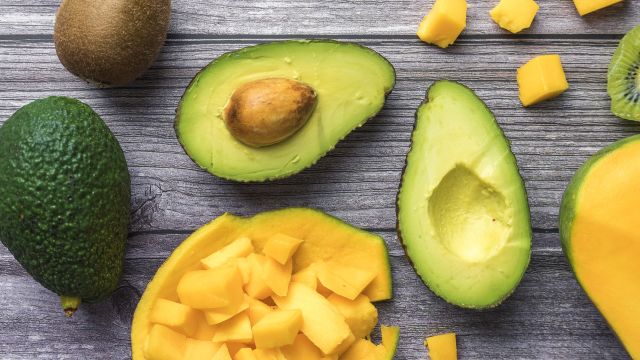Updated on October 17, 2024
Thyroid eye disease (TED) is a condition that usually develops in people with an overactive thyroid (hyperthyroidism) caused by an autoimmune disorder called Graves’ disease.
When it comes to managing TED, diet plays an important role. Some foods may worsen symptoms of Graves' disease or hyperthyroidism. If you eat foods that you’re sensitive to, this could also affect your immune system and cause your Graves' disease to flare.
Here some ingredients and nutrients to watch out for if you have TED.
Iodine
Excessive intake of iodine may trigger hyperthyroidism in older adults or those with a preexisting thyroid disease. Foods that are naturally high in iodine include those that come from the sea (especially white fish such as haddock and cod) as well as seaweed, kelp, and some other sea vegetables.
Other foods are often fortified with iodine, meaning iodine is added to them. These include salt, bread, and dairy products such as milk, cheese, and yogurt. Other iodine-rich foods include egg yolks, milk chocolate (due to the dairy content), and commercially prepared bakery products that are made with iodate dough conditioners.
Gluten
A significant number of people with thyroid disease also have celiac disease. (Celiac disease is an autoimmune disease in which eating gluten leads to damage of the villi, small structures that line the inner surface of the small intestine.) Gluten is a general name for a protein found in wheat, rye, barley, and triticale (which is a cross between wheat and rye).
Some patients with celiac disease have reported a lower need for thyroid hormone replacement after being on a gluten-free diet for a period of time. One reason is that being on a gluten-free diet allows the small intestine to heal, and therefore thyroid medication may be better absorbed. A gluten-free diet may also cause a lower inflammatory response and reduce the inflammation of the thyroid gland.
Gluten can be found in many starchy foods such as pastas, breads, and baked goods. But it may also be present in foods you might not expect, such as soups, sauces, salad dressings, and beer. Be sure you’re checking nutritional labels for gluten and opting for gluten-free options. Many foods that traditionally have gluten are also available in gluten-free versions these days.
Foods for a healthier thyroid
Just as certain foods may exacerbate some aspects of thyroid disease, other foods contain specific nutrients that are an important part of a healthy diet when you have TED. They include food and drinks that are rich in:
Vitamin D
This important vitamin serves many functions, among them helping your body more readily absorb calcium. Most vitamin D is made in the skin through the absorption of sunlight, but there are dietary sources as well, including certain types of fish. If you are eating fish, choose carefully. While tuna is a good source of vitamin D, it also comes from the ocean (making it high in iodine). More TED-friendly fish options include freshwater salmon and cod.
Magnesium
Magnesium is important in helping your body absorb vitamin D. Furthermore, if you’re not getting enough magnesium, it could potentially worsen your hyperthyroidism. Foods high in magnesium include avocados, almonds, legumes, and pumpkin seeds.
Selenium
Essential for thyroid hormone production, selenium helps protect the thyroid from damage caused by oxidative stress. The thyroid contains high amounts of selenium, and a deficiency can cause the thyroid to stop working properly. Rich sources of selenium include mushrooms, brown rice, sunflower seeds, and sardines.
Putting together TED-friendly meals
When it comes to creating meals, there are lots of delicious directions in which you can go. For breakfast, you might opt for oatmeal. Oats are gluten-free but they may be processed in the same facilities as gluten-containing grains. When shopping for oatmeal, be sure to look for “gluten-free” on the label. This means the oats haven’t shared a facility with foods that contain gluten. Consider topping your oatmeal with almonds or fresh fruit.
For lunch, a good option is a fresh salad of leafy greens tossed in oil and vinegar, topped with slices of avocado and sprinkled with pumpkin seeds. Add some gluten-free crackers on the side for a little extra crunch. Dinner could be fillet of grilled freshwater salmon with sides of roasted broccoli and brown rice. Just make sure the salt you use to prepare your meals is non-iodized.
Making changes that make a difference
When it comes to managing TED, dietary adjustments can go a long way. Your healthcare provider (HCP) can recommend a registered dietitian who focuses on autoimmune diseases to help guide you. Because everyone’s health is unique, talk to your HCP before you make any changes to your diet or begin using any dietary supplements.






